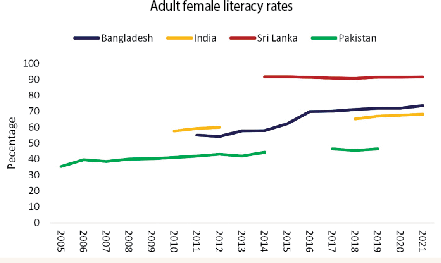
PAKISTAN seems to have lost its growth momentum during the democratic transition.
The delayed policy decision to approach the International Monetary Fund (IMF) accumulated the economic cost and eroded the manoeuvring space to amicably strike a deal. The stalemate in the bailout talks with the IMF will hopefully be managed in days ahead.
The indecisiveness of the government on the key issues and the lack of clarity on the policy direction could have de-motivated investors who need to adjust their business models to the altered policy framework before taking a plunge. The futures business that depends on perception more than the fundamentals took a beating in a volatile economic environment.
In August 2018, the Imran Khan government came to power promising a ‘Naya Pakistan’. The PTI 100-day tracker shows progress on all promises. Economic data, however, indicates that the GDP growth forecast has moderated, inflation hiked, reserves dipped and the rupee weakened. The capital, property, commodity and currency markets are in a flux. The situation is difficult but the government can’t afford to give up on
The singular focus of the government on corruption has unnerved the asset owning classes (potential investors). Hounding of tax payers by the Federal Board of Revenue to cover shortfall in revenue generation has angered many who believe that the inefficient tax collectors are punishing compliant tax payers for their own follies.
The corporate sector resents the narrow tax base. It expected Finance Minister Asad Umar to announce some measures to broaden the tax net in the mini-budget.
The Economic Advisory Committee, which includes eminent economists, can’t be absolved for lack of consistency and desired action on the economic front. The decision to allow non-filers to buy new vehicles and property, and later the reversal, emerged as a case in point in this regard.
Economic diplomacy yielded results in Saudi Arabia’s case, but for desperate Pakistan other friendly countries were perhaps less forthcoming than expected. China and the CPEC engagement are too precious to be taken for granted and the government learned the hard way to tread cautiously on this count.
The top business circles, impressed with the electoral performance of the new leadership, continue to be optimistic about Prime Minister Khan. They believe three months is too short a time for anyone to successfully steer the economy clear in choppy waters.
Beating all odds the party did succeed in mobilising the youth of Pakistan with its election platform and delivered a spectacular election result in the general elections 2018. The initial indecisiveness of the PTI government can partially be attributed to the lack of experience and the complexities of running the country.
At the end of the first three months of the PTI government, Dawn Business and Finance has reached out to stakeholders to see the distance covered and gauge the perception of the government’s performance in key sectors
The PTI government inherited a fairly strong economy on a high growth trajectory. The GDP escalated at 5.8 per cent in FY18 and was projected to grow by over 6pc in FY19. The crisis, however, was already mounting on the external front, exerting pressure on the currency.
The caretaker set-up that preceded the current government did try to curb imports and boost exports without significant success.
Dr Shamshad Akhtar, the caretaker finance minister, claimed to have made the initial contact and completed the groundwork to engage with the IMF in an attempt to facilitate the incoming government.
There was consensus in the market, eyeing rising oil prices and loan repayment obligations, that the IMF is the only viable option to check the drawdown in reserves and for stabilisation.
Mr Khan’s first address to the nation after assuming power was well received. It kindled hope as the tone adopted was mild and reassuring. He pledged to make progress more meaningful on the strength of a lean, clean and efficient government. The vision to shift the thrust of development endeavours from brick and mortar (physical infrastructure) to human development (social infrastructure) was welcomed.
His pre-election 11-point agenda provided a road map for future course of actions. The said plan promised reforms in health and education to ensure equal opportunities, a drive against corruption and illegal capital transfers abroad, an equitable uniform taxation system and a business friendly environment to mobilise investment particularly by overseas Pakistanis.

It went on to focus on finer job opportunities for better skilled youth, attention to tourism, better deal for farmers on an emergency basis, inter-provincial harmony, independent institutions and rule of law, and an end to gender discrimination.
The induction of Asad Umar and Razak Dawood in the cabinet inspired confidence because of their business track record. Unfortunately, in the first 90-days the economy’s stress aggravated as lingering external front imbalance and abrupt decisions to hike gas and energy prices initiated a reverse spiral encompassing major sectors.
The PTI leadership privately blamed the hostile civil administration and started to reshuffle the bureaucracy. The move, however, generated friction more than energy and lead to a virtual paralysis in the government at one point.
Despite barbs traded in and out of the National Assembly, Senate and media the PTI government did manage to neutralise the opposition but did not quite succeed in doing what was considered crucial to sustain the growth momentum in the first three months of its rule.
Published in Dawn, The Business and Finance Weekly, November 26th, 2018

































